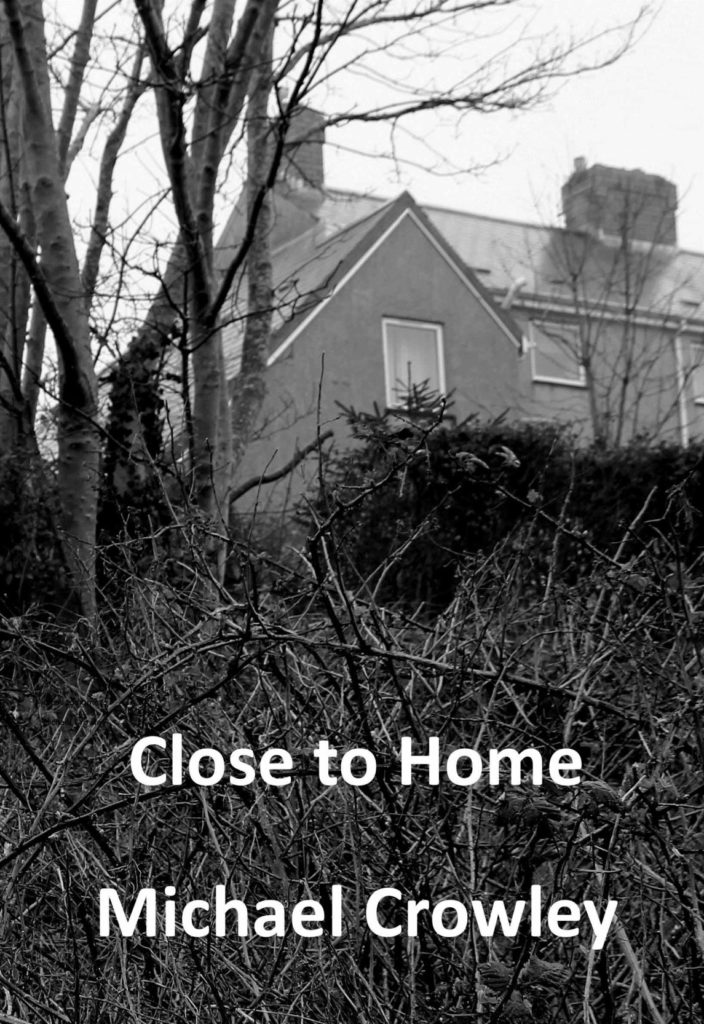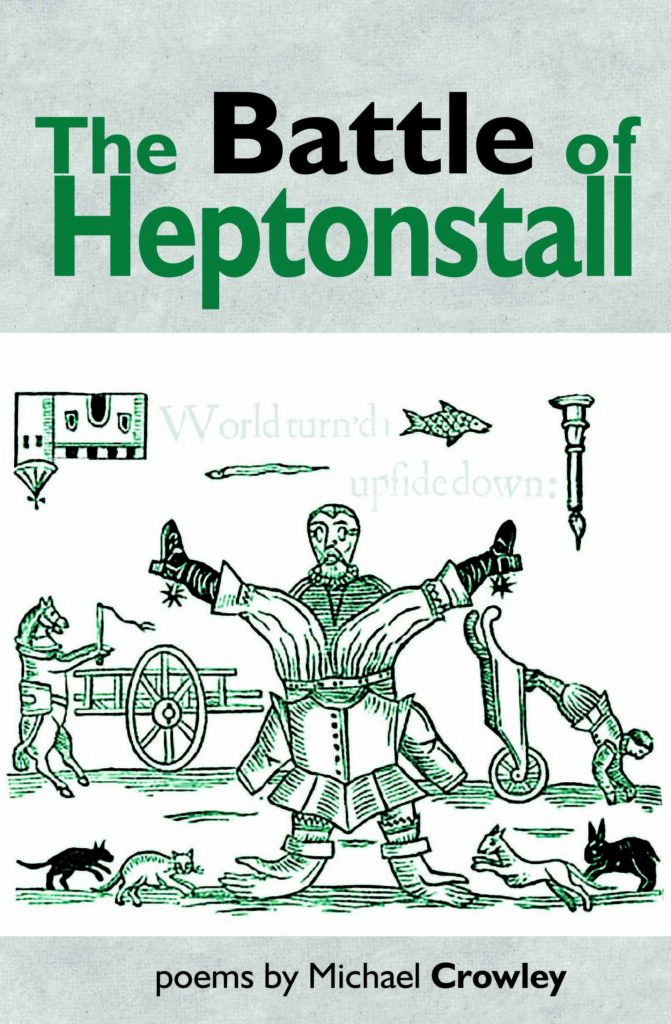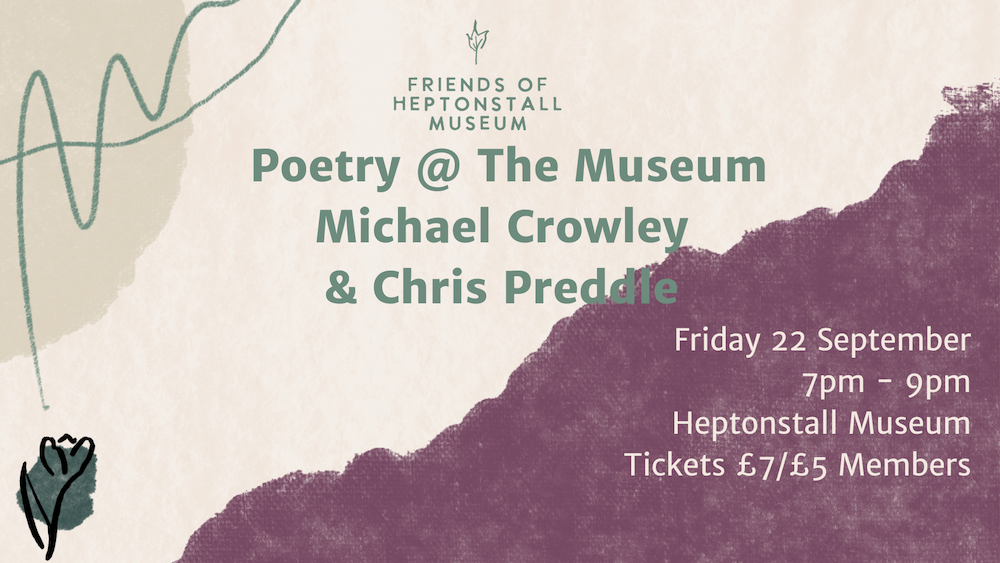
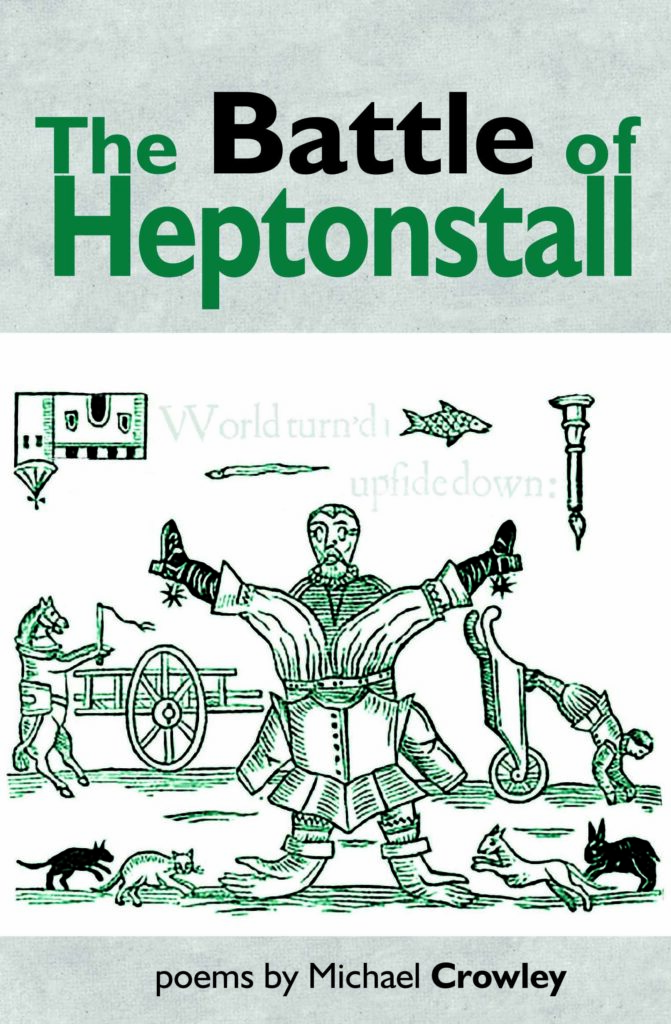
“In November 1643 eight hundred Royalist cavalry and foot soldiers led by Sir Francis Mackworth attempted to seize the small West Riding town of Heptonstall from the occupying Parliamentary forces. Although they were driven back after a bloody night battle, several weeks later the Royalists returned in greater numbers, sacking the town, burning the houses and taking the livestock. The wool trade was destroyed for a generation. Plague followed. A few years ago, Michael Crowley turned the story of this small, bloody battle in the English Civil War into a community play. The Battle of Heptonstall takes some of the characters from the play – real and imagined – and lets them tell their own version of events. It is an examination of ideology, class and Englishness, from the Putney Debates to Brexit, a book about propaganda and division, authority and dissent, reaction and resistance, then and now.”
Available from Smoksetack Books
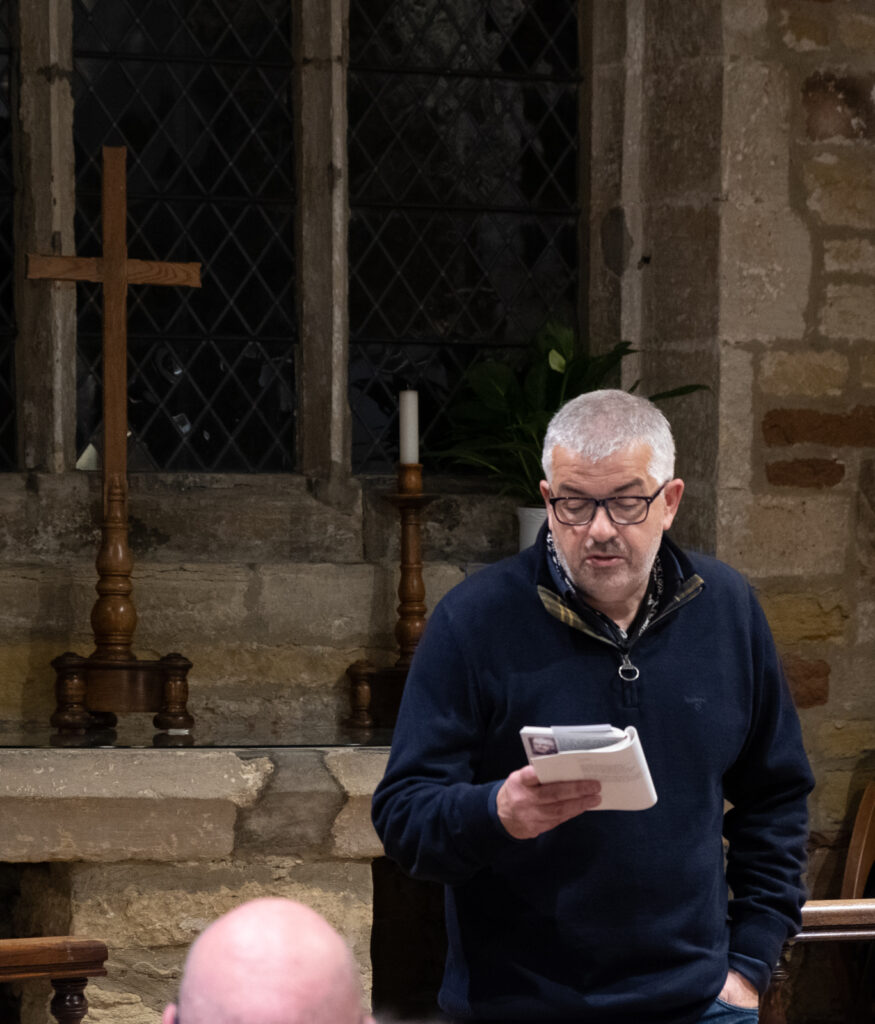
Reading at the Leper Chapel, Ripon, Ripon Poetry Festival 2021.
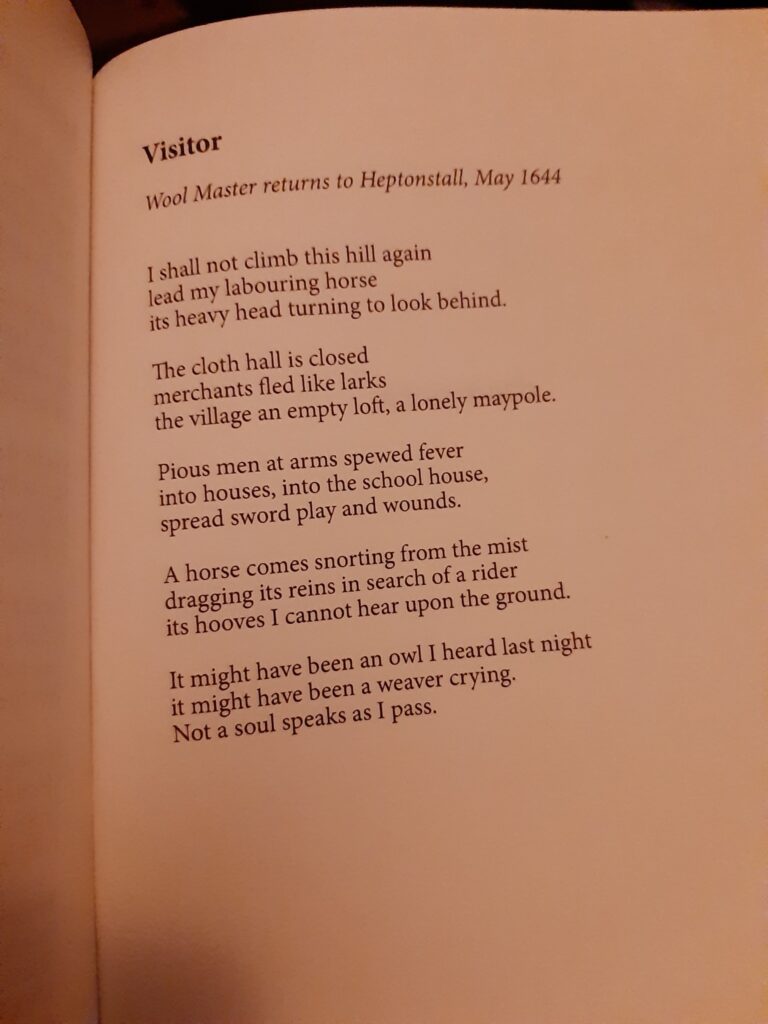
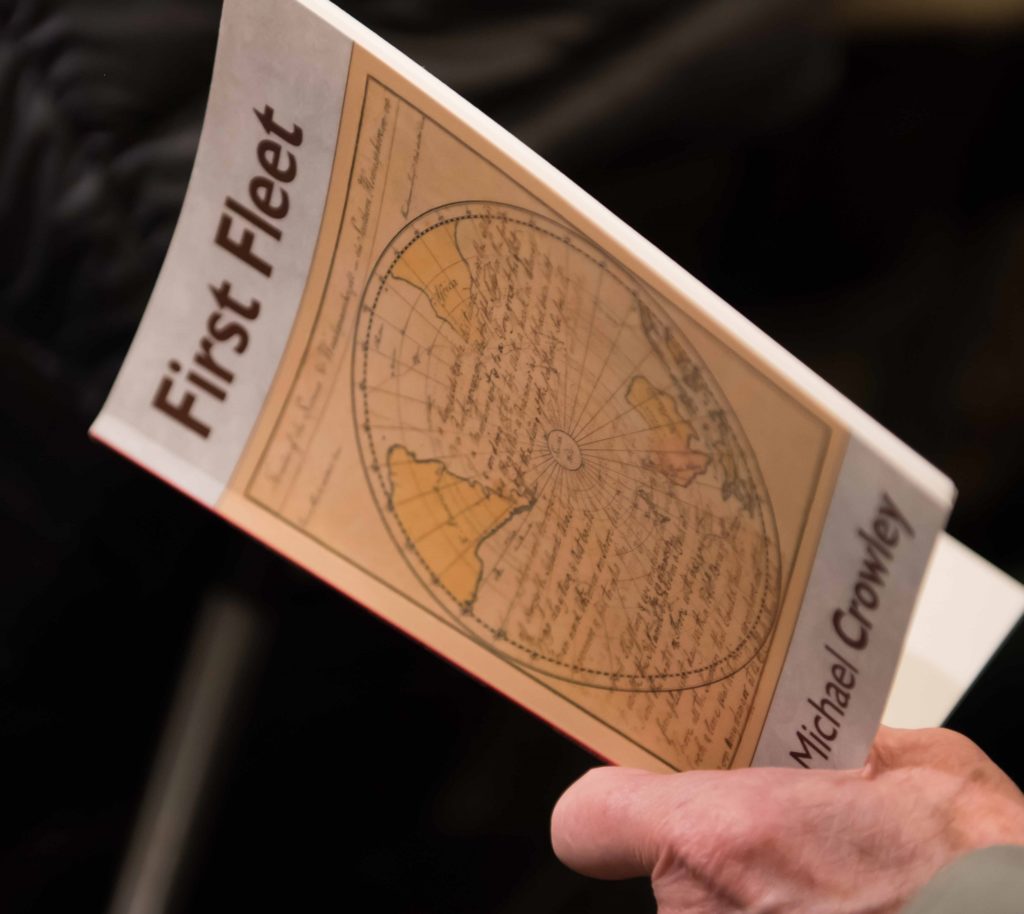
“Between 1787 and 1850 over 160,000 convicts were sent from Britain to penal colonies in Australia. First Fleet tells the story of the first eleven ships that sailed from Portsmouth on a 15,000-mile voyage to establish the first British penal settlement at Sydney Cove. Drawing on the surviving journals of some of the men and women on board the prison convoy, these poems inhabit the imaginary voices of convicts, crew, marines and Aboriginal people to give intimate voice – lyrical, poignant and unsentimental – to the poverty they left behind and the terrible ‘starvation years’ they faced when they reached Australia. This is a book about history and landscape, imprisonment and, environment.” Andy Croft, Smokestack Books
Healing
Jane Fitzgerald receives twenty-five lashes for disobedience, March 1789.
I only talked with William. We like to talk with each other;
our corner in the shade. But Bloodworth the brick-master,
the henhouse sneak, has folk flogged now, easy as a major.
William went to plead but mister Tench said
I have written the sentence down. William said,
count every second stroke Jane.
I couldn’t count after five. I pressed my face
into the tree like it was my mother’s skirts,
Bloodworth shouting dammed bitch from the crowd.
I saw my daughters in Bristol.
The girls taller, waist-high to their father at the gate
their faces clean, hair shining, their mouths shut bravely tight.
When it stops my eldest holds my hand. We walk to my hut.
Women are separate from the men now.
We have our own fires and places.
But William, he nurses me.
His narrow fingers, soft as water make me sleep.
I dread the flies that’s all – footsteps along my wounds,
the shiver of their eggs.
William is no soldier. His uniform hangs off his shoulders,
he is young, taunted and ordered by all others.
But he brings me the healing leaves,
sets down his musket, reaches for me.
I will sew his torn sleeves.
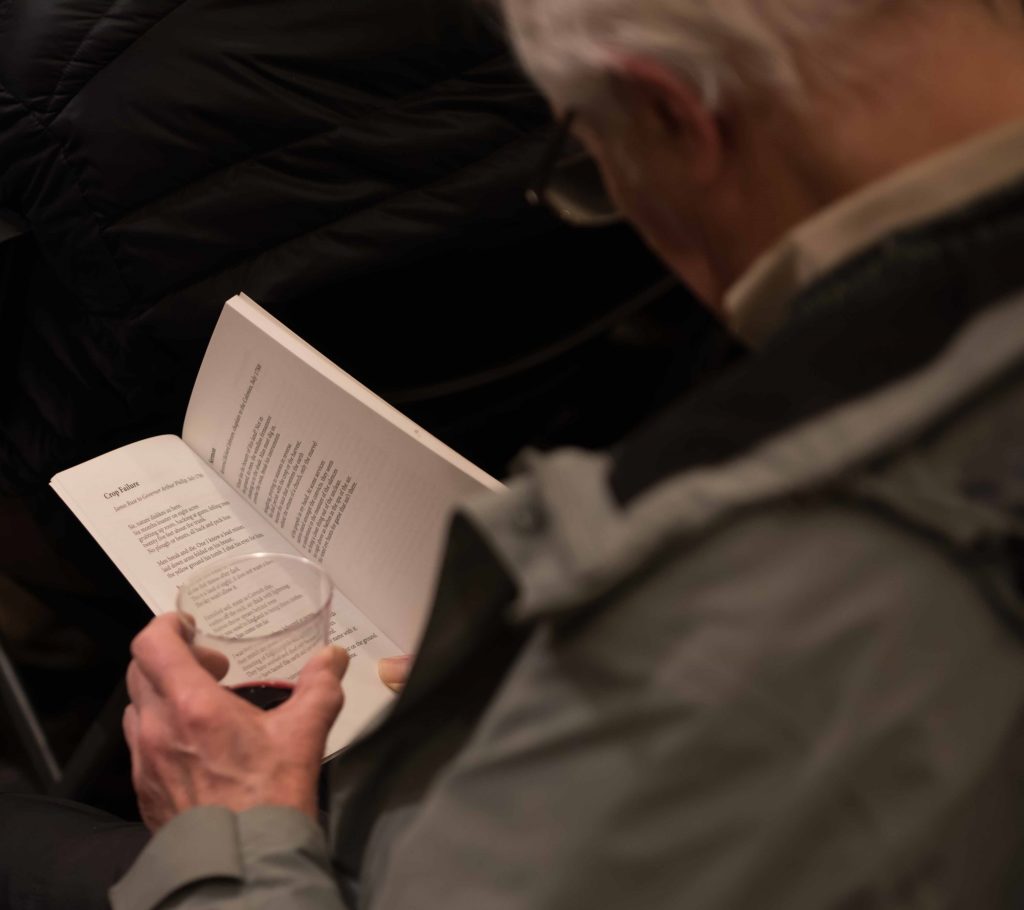
‘Most poets don’t have a story to tell. But Michael Crowley does.’ The High Window
‘Crowley has the skill of a novelist, but a poet’s ability to concentrate on what matters.‘ Poetry Salzburg Review
‘…a journey in the hands of a skillful captain.’ London Grip
‘…his ability to bring images to life is unerring.’ Mistress Quickly’s Bed
‘Unashamedly didactic. Highly recommended.’ The Recusant
Too Late (from First Fleet)
In the governor’s office, I have no questions.
I’ve slept well since I got the news –
no more phone calls from custody sergeants,
people he owed money to barking at the door.
He checks his notes, Shall we go over?
Never ending lawns, well-kept flower beds,
two prisoners throwing grass at each other.
A pack of seagulls fighting outside the wing.
One swoops down, its beak open; I can see
its tongue. They hand me his clothes bagged and sealed.
The cell like his bedroom the day I turfed him out.
He’d leaned forward, the sheet around his neck.
A boy collecting laundry stares in on me,
edges his cart forward another door.
Beyond the window, conifers and hills,
one of those early winter sunsets, raging.
Too Late won Oxford Backroom Poets international poetry competition 2017. First Fleet available from Smokestack Books and Amazon
Close to Home
It was an overspill, tipped into fields
after the War. We played in woods,
held chalk-white warm eggs, frogspawn and newts
caught in the tracks left by the diggers.
We lived in white semis and grew detached
between the one-way system and the end of the line.
Some of us knew the names of trees,
some all the stops to Euston.
Nobody knew the fields better than me –
the hour and a half of copse and grass,
the dell deep enough to abseil down,
bright red lines on my palms from the washing line.
Coaches came to take our parents to work
along asphalt like liquorice.
We spoke of where our families came from,
we made our voices belong.
My mother spoke about going home.
Still, there were always the fields, always a song,
I was the first to sing when the weather was high
there were Germans to fight, places to hide
and her, standing at the edge of the path
calling me in before the other boys.
There was no adventure for the Famous One.
We moved on. It became itself after we’d gone.
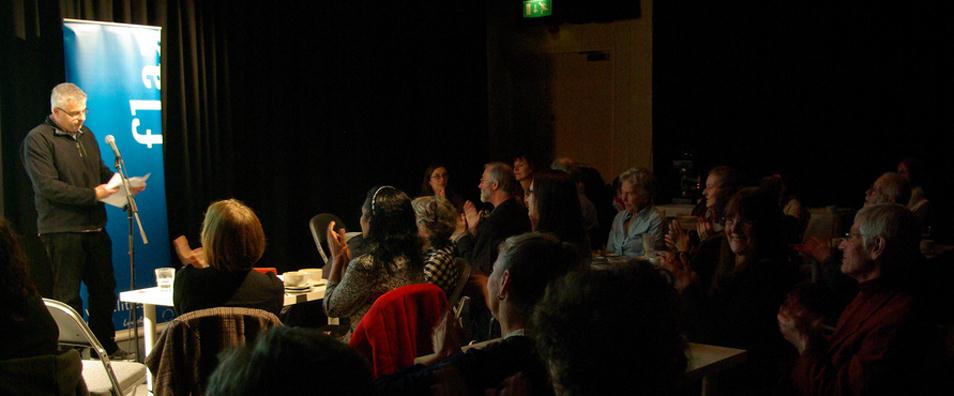
Three poems available at Clear Poetry
